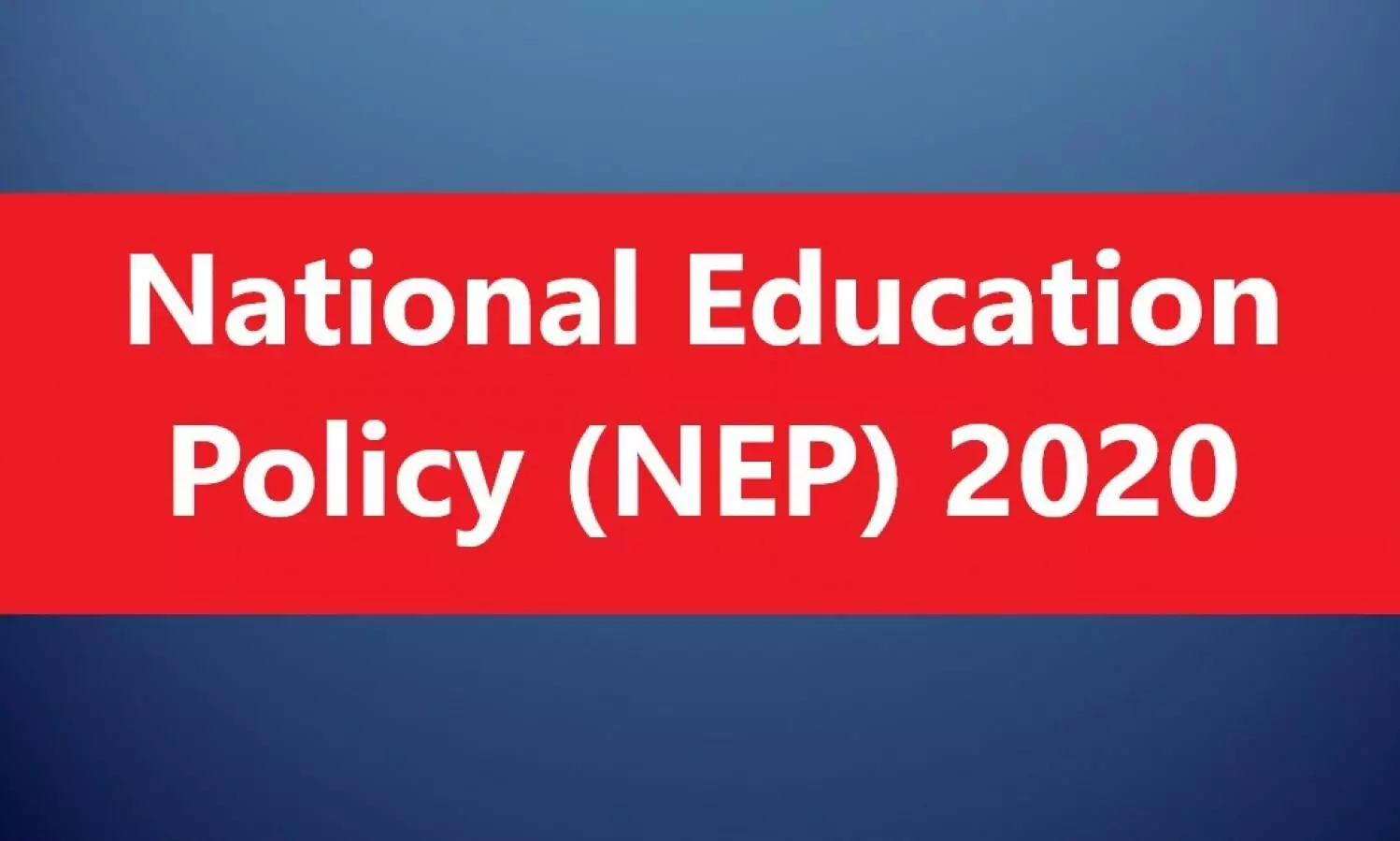
National Education Policy 2020 needs more debate
text_fieldsImage Courtesy : https://english.newstracklive.com
The central cabinet has given its accord to the new National Educational Policy 2020 (NEP) submitted by Dr Kasturirangan Committee. The new policy envisages a thorough revamp in the national education sphere. With its being rung in , what is rung out is the 1986 policy introduced during the Rajiv Gandhi government which was prepared by Prof Yashpal Committee. Thus the vital sector of the country is looking for an overhaul after 34 years. A new education policy was also one of the poll promises of the BJP in the 2014 lection. In line with a decision in 2016 , when Smriti Irani was the minister for human resources development, a committee was formed under former Cabinet Secretary TSR Subramanian which did submit its report too. But due to the difference of opinion with the central government, it was frozen. With Prakash Javadekar taking over the human resource portfolio in 2017, a new committee was constituted with Dr Kasturirangan as chairman. The new 60-page policy document now adopted by the union cabinet is based on this Committees report submitted in May 2019 to the minister in charge Ramesh Pokhriyal.
NEP 2020 makes education a fundamental right upto the age of 18 and that includes an added lower age group of children from 3 to 6. Instead of the 10+2 pattern, a new grading is introduced with a five year pre-primary and classes I and II, followed by level 6 to 8 and finally from 9 to 12 constituting four year secondary level (thus a 5+3+3+4 pattern). Further, the policy guideline on higher education provides for a radical change in the nature of learning from undergraduate level upto universities. Instead of the institution of University Grants Commission, a single authority will come into being covering the entire higher education spectrum except law and medical colleges. A single code for publilc and private educational institutions and a common entrance test are also targeted. In short, with NEP's implementation, the entire country is set to witness a comprehensive national educational reform.
There won't be any disagreement that the education policy conceived in 1986 should undergo updating in tune with the times, especially given the stupendous knowledge explosion that the world has undergone - which our existing pedagogy and syllabi have not absorbed adequately. And the Kasturirangan Committee's recommendations do contain, along with the political and cultural agenda of the sangh parivar, also a laudable attempt to integrate new technological developments and to make students capable of new knowledge generation. One of this is the feature of raising of upper age from the current 14 to 18 years of students entitled to education as a fundamental right. In addition, the new policy also repeats the principle – which has been made by policy panels right since the Kothari Commission - that the fund allocation for education should be raised to 6 per cent of GDP. If implemented, it will be a landmark event. Also deserving kudos are the linking of education to jobs and the approach to eliminate the gulf between science and humanitarian subjects. And the provision to discontinue studies mid-way and resume later, and proposals to mitigate the load of the curriculum and to make them subject-centric, are sure to be beneficial to students. But what will undo such positive moves envisaged in the policy are the political interests that underlie them. The elated response of RSS leader Bala Mukund on NEP was that 80 percent of the recommendations made by the organisation were accepted.
The precedent hitherto for an education policy has been to introduce it after detailed debate and amendments in the parliament. But the central government was not prepared to place it in legislative houses or to lend an ear to opposition viewpoints. Education being a subject in the Concurrent List, it is a constitutional obligation to give due consideration to the views of states too. But that concept too has been sabotaged. The Centre has chosen to deliberately ignore the suggestions of non-BJP ruled states. Once the new policy comes into force, states will be reduced to agencies chartered to implement the programmes of the Centre in all areas of education from nursery level to post-graduate degrees. The text of the policy is long on merit and short on reservation to the point of being silent on the latter. Its language policy may be a hurdle for the higher education of the marginalised. The left parties' camp has already raised the concern that the new policy will intensify centralisation, communalisation and commercialisation of education. Strong reproach has also been raised against NEP containing agenda that go against an egalitarian social system free from discrimination and facilitate a sangh-driven cultural transformation. For that very reason, NEP needs to be subjected to substantive debate before implementation. The attempt to metamorphose the brains of a generation should not be viewed lightly as just another executive action of a government.






















